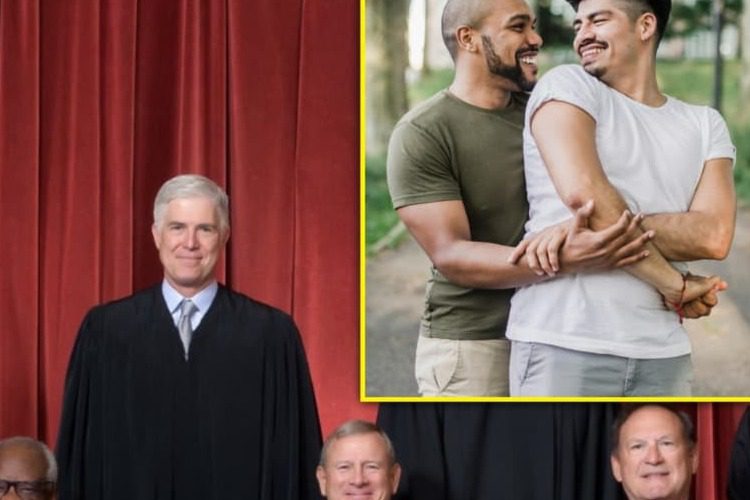Supreme Court Rejects Bid to Overturn Same-Sex Marriage Ruling in Shocking Decision
In a decision that may feel like quiet thunder, the Supreme Court of the United States on November 10, 2025 declined to hear an appeal from former Kentucky county clerk Kim Davis, thereby letting stand the landmark 2015 ruling in Obergefell v. Hodges that legalized same-sex marriage nationwide. Davis, who became a national figure in 2015 after refusing to issue marriage licences to same-sex couples in Rowan County, Kentucky, argued that her religious beliefs and First Amendment rights were being denied. Her appeal attempted to challenge the foundational legal precedent itself.
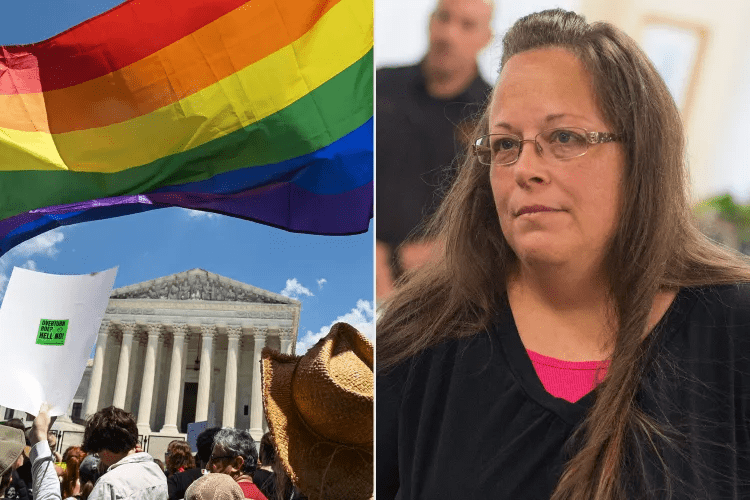
The High Court’s action — or rather the lack of action — may seem modest on its face: no new opinion, no oral arguments, just a silent refusal to intervene. But the implications echo far and wide. With a conservative majority that had just reversed another major constitutional right (the right to abortion in the 2022 Dobbs decision), many watchers anticipated that same-sex marriage might be next. Instead, the Court chose restraint. It quietly ensured that couples who have been married under the Obergefell decision remain secure in their status, without wrestling with a full-blown showdown.
Davis’s legal battle stretches back a decade. After Obergefell, when the law of the land required her county to issue marriage licences to same-sex couples, she defied the court order, citing her Apostolic Christian faith. She was briefly jailed for contempt in 2015 and later a jury awarded one of the couples she denied a licence $100,000 in damages, along with more than $260,000 in legal fees. In March 2025 the Sixth Circuit rejected her request for qualified immunity, saying that as a public official executing her duties she could not hide behind a personal religious defence.

In July 2025, Davis’s legal team filed a petition to the Supreme Court seeking not only to overturn the damages award but to reopen Obergefell itself. They argued that the constitutional basis for that decision — namely “substantive due process” — had been undermined by later rulings such as Dobbs, and that marriage law should return to state legislatures. The Supreme Court’s decision not to hear the case therefore signals a choice not to revisit marriage rights at this moment.
Several key facts frame this outcome. First, Obergefell remains binding precedent: the Court has held that state laws banning same-sex marriage violate the Fourteenth Amendment’s due process and equal protection clauses. Second, although the Supreme Court denied review, that does not mean it declared marriage rights inviolable forever — just that it won’t open the door now. Advocates on the right warn the fight isn’t over. In several states, legislation has been introduced urging the Supreme Court to reconsider the ruling.
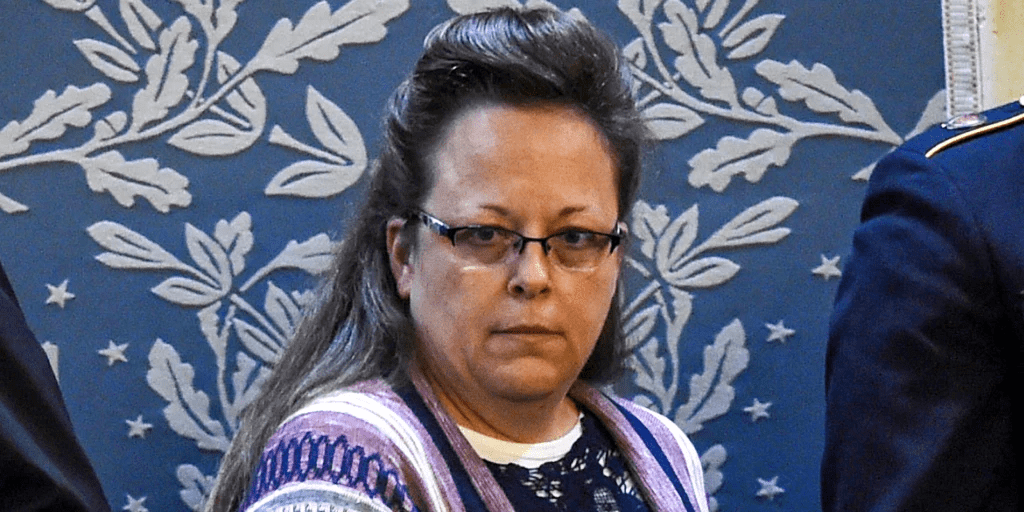
From a political lens, this moment carries weight. President Donald J. Trump appointed three justices during his first term, shifting the Court’s balance. Many in his base expected aggressive action on major cultural precedents. That the Court chose not to act may reflect strategic restraint, or a recognition of the societal entrenchment of same-sex marriage. For supporters of marriage equality, Monday’s outcome brought relief. For religious-liberty advocates and conservative activists, it was a setback.
This story is not just legal, but deeply personal. Thousands of couples nationwide built lives, coloured by their status as married under federal and state law. To them, the Court’s refusal means stability — the paperwork remains valid, the rights remain respected, the lives built on those rights remain undisturbed. At the same time, the decision leaves open tension for public officials. Kim Davis’s appeal challenged whether an elected official can impose personal faith in the execution of public duty — the Sixth Circuit and now the Supreme Court have answered that no, personal belief cannot permit the denial of a constitutional right.
Critics warn that the silence of the Court today is not a guarantee of permanence tomorrow. The foundations of Obergefell remain contested in legal scholarship. Justices quietly acknowledged in previous opinions that same-sex marriage presents different considerations than abortion, because of the reliance interests marriage built over years. Meanwhile, in statehouses across the country conservative lawmakers continue to explore ways to chip away at marriage rights, or to introduce alternative structures that align with religious perspectives.
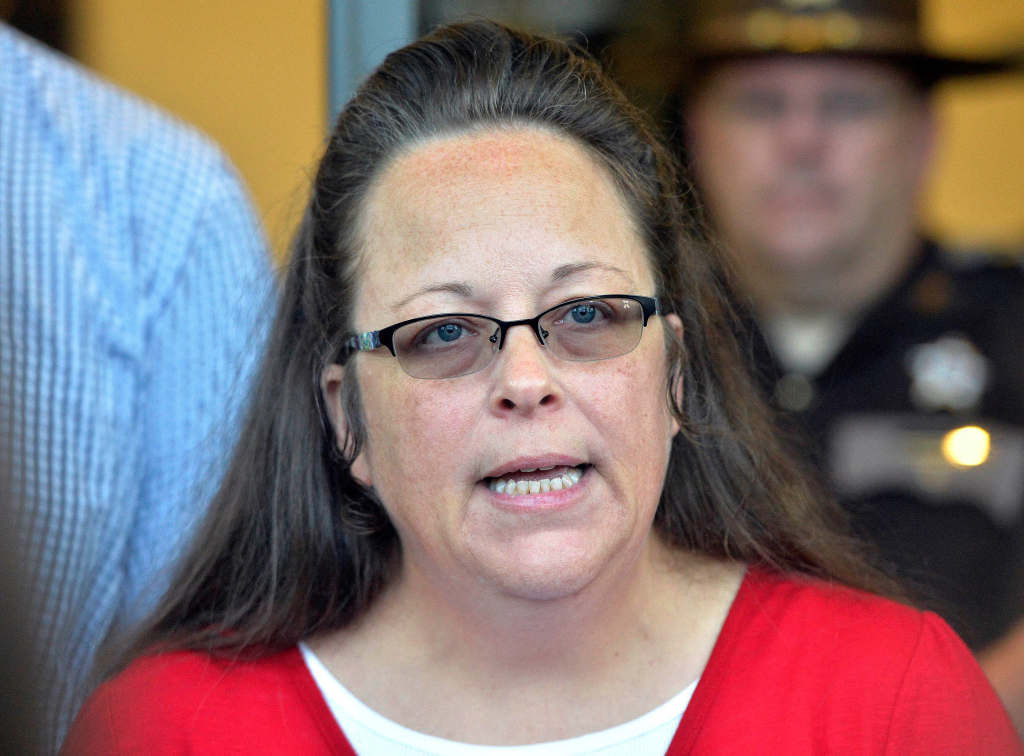
In Kentucky, Davis’s home state, the saga continues with the couple she denied licences, David Ermold and David Moore, who were awarded damages and have said they only sought equal treatment under the law. Her appeal was in part motivated by a desire to overturn the district court’s ruling that denied her immunity and ordered her to pay those damages. The Supreme Court’s refusal leaves that judgment intact.
For the legal community, observers say this moment will be studied for its message: even when major precedents sit on shaky doctrinal ground, institutions sometimes choose continuity over upheaval. The Court’s refusal to act may reflect recognition of the depth of marriage equality’s embedding in American law and society. Even so, it will not settle the broader fight over religious-liberty claims and the role of public officials.
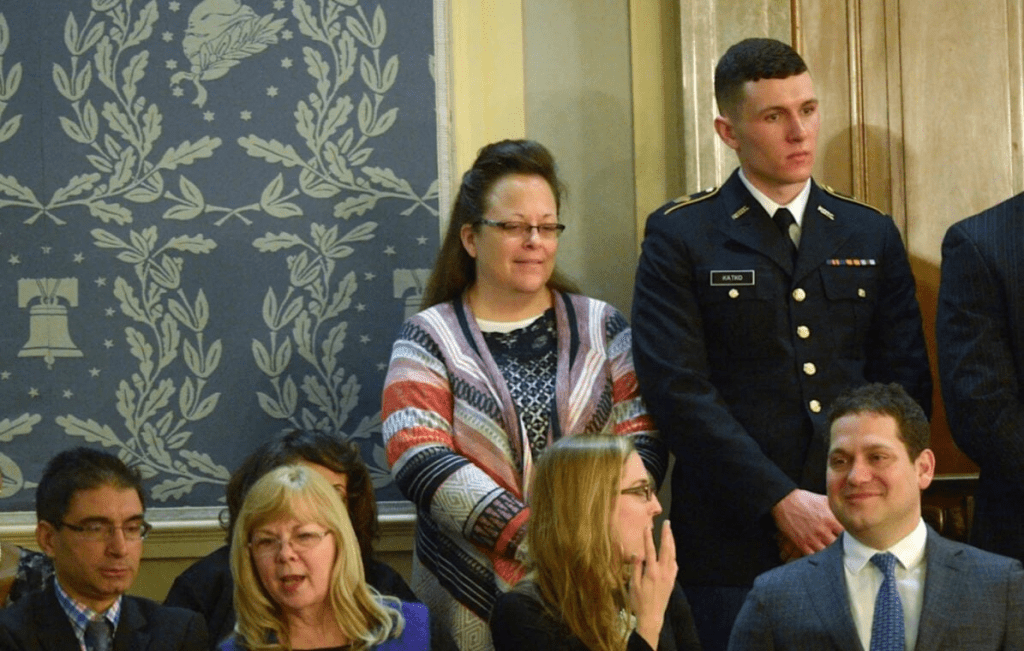
From a human perspective, Monday’s news marks none of the fanfare of previous landmark rulings. There was no fireworks, no dissent-laden opinion, no flag-waving. Just a quiet denial. But in that quiet denial lies a signal: for now, same-sex marriages remain protected, and the constitutional guarantee stands. For people asleep at dawn, this may seem anticlimactic. But for millions who married, planned families, or gained security from the 2015 decision, it matters deeply.
Ultimately, this story is about the messy intersection of faith, duty and civil rights. Kim Davis believed her religious convictions should exempt her from performing a law she found contrary to those convictions. The courts, time and again, have said that when one acts as a state official, the obligation is to law, not personal belief. The Supreme Court once again reaffirmed that principle — not with bold pronouncement, but with its silence. And sometimes silence speaks the loudest.
